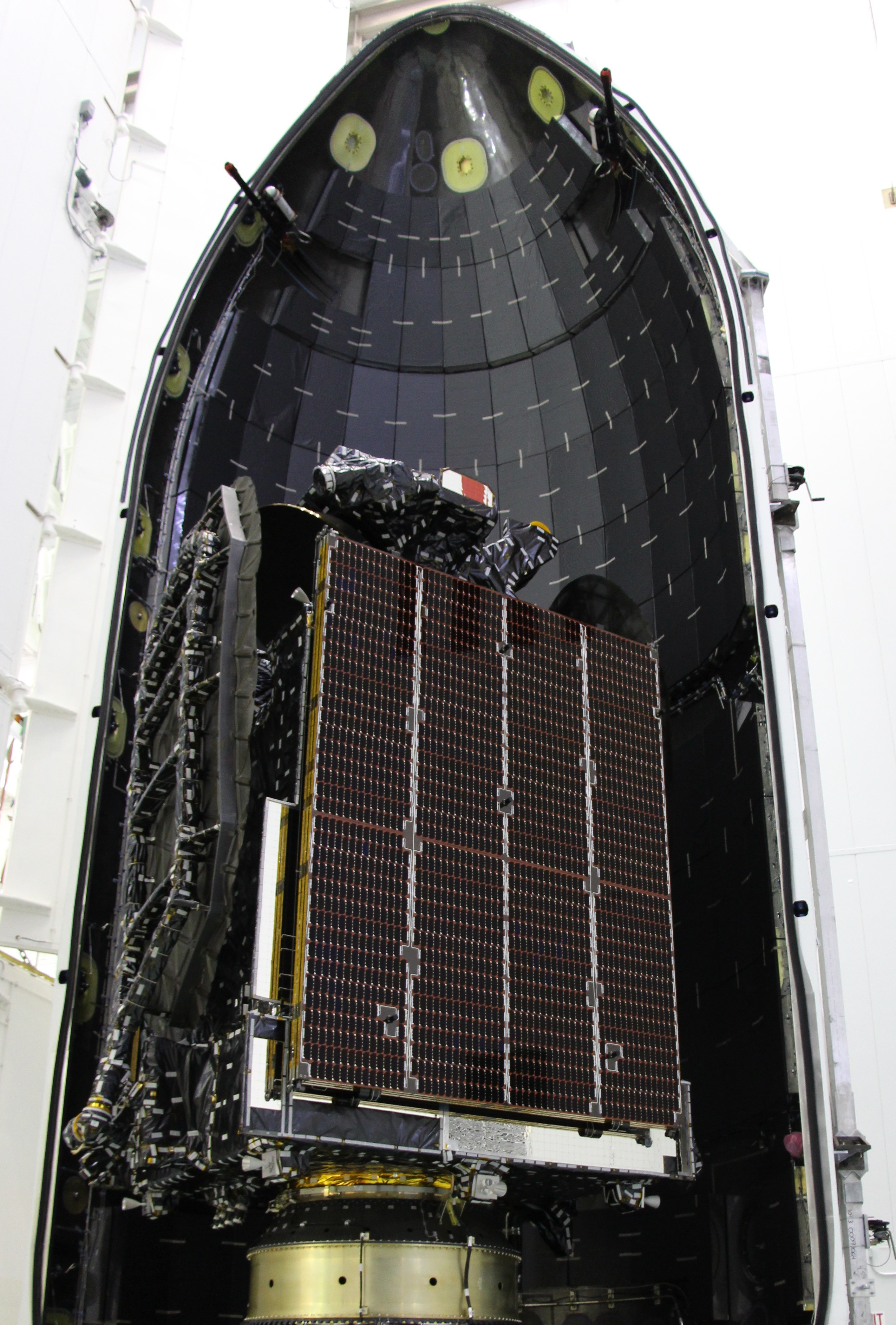SpaceX Delays Commercial Satellite Launch Over Reusable Rocket Mishap

Breaking space news, the latest updates on rocket launches, skywatching events and more!
You are now subscribed
Your newsletter sign-up was successful
Want to add more newsletters?

Delivered daily
Daily Newsletter
Breaking space news, the latest updates on rocket launches, skywatching events and more!

Once a month
Watch This Space
Sign up to our monthly entertainment newsletter to keep up with all our coverage of the latest sci-fi and space movies, tv shows, games and books.

Once a week
Night Sky This Week
Discover this week's must-see night sky events, moon phases, and stunning astrophotos. Sign up for our skywatching newsletter and explore the universe with us!

Twice a month
Strange New Words
Space.com's Sci-Fi Reader's Club. Read a sci-fi short story every month and join a virtual community of fellow science fiction fans!
SpaceX called off the planned early-morning liftoff of a commercial telecommunications satellite Wednesday (Aug. 27) to perform a thorough check of its launch systems in the wake of a test-flight mishap last week involving a prototype rocket.
The private spaceflight company had intended to launch the AsiaSat 6 satellite to orbit atop its Falcon 9 rocket at 12:50 a.m. EDT (0450 GMT) Wednesday from Florida's Cape Canaveral Air Force Station. But the company called off the attempt Tuesday afternoon (Aug. 26).
"We are not aware of any issue with Falcon 9, nor the interfaces with the spacecraft, but have decided to review all potential failure modes and contingencies again," SpaceX founder and CEO Elon Musk said in a statement. "We expect to complete this process in one to two weeks." [SpaceX Destroys Reusable Rocket in Test (Video)]
The scrub comes just four days after SpaceX's prototype Falcon 9 Reusable (F9R) rocket self-destructed shortly after launching from the company's test site in McGregor, Texas. But Friday's (Aug. 22) F9R mishap likely has little bearing on the performance of an operational Falcon 9 rocket, Musk said.
"Had the same blocked sensor port problem occurred with an operational Falcon 9, it would have been outvoted by several other sensors. That voting system was not present on the test vehicle," Musk said in the statement.
"What we do want to triple-check is whether even highly improbable corner case scenarios have the optimal fault detection and recovery logic," he added. "This has already been reviewed by SpaceX and multiple outside agencies, so the most likely outcome is no change. If any changes are made, we will provide as much detail as is allowed under U.S. law.”
Friday's anomaly had initially caused SpaceX to push the AsiaSat 6 launch back by 24 hours, from early Tuesday to early Wednesday.
Breaking space news, the latest updates on rocket launches, skywatching events and more!
AsiaSat 6 is designed to distribute video and broadband service to customers throughout the Asia-Pacific region. It will be operated by Hong Kong-based firm Asia Satellite Telecommunications Company Limited (AsiaSat).
SpaceX launched the AsiaSat 8 satellite earlier this month. Both spacecraft were built for AsiaSat by California-based firm Space Systems/Loral.
Developing reusable rockets is a priority for SpaceX. Musk has said that a fully and rapidly reusable launch system could cut the cost of spaceflight by a factor of 100, opening up the heavens to exploration.
So SpaceX has conducted numerous test flights of reusable rocket prototypes lately, including the F9R and Grasshopper vehicles. The company has also successfully brought the first stage of a Falcon 9 back to Earth for a soft ocean splashdown during satellite launches twice this year.
Follow Mike Wall on Twitter @michaeldwall and Google+. Follow us @Spacedotcom, Facebook or Google+. Originally published on Space.com.

Michael Wall is a Senior Space Writer with Space.com and joined the team in 2010. He primarily covers exoplanets, spaceflight and military space, but has been known to dabble in the space art beat. His book about the search for alien life, "Out There," was published on Nov. 13, 2018. Before becoming a science writer, Michael worked as a herpetologist and wildlife biologist. He has a Ph.D. in evolutionary biology from the University of Sydney, Australia, a bachelor's degree from the University of Arizona, and a graduate certificate in science writing from the University of California, Santa Cruz. To find out what his latest project is, you can follow Michael on Twitter.
